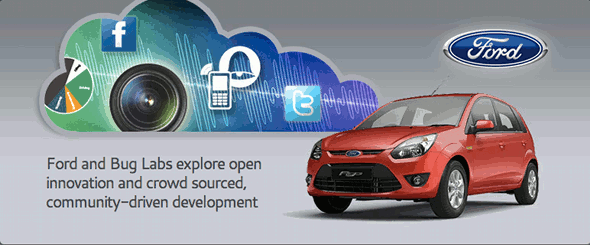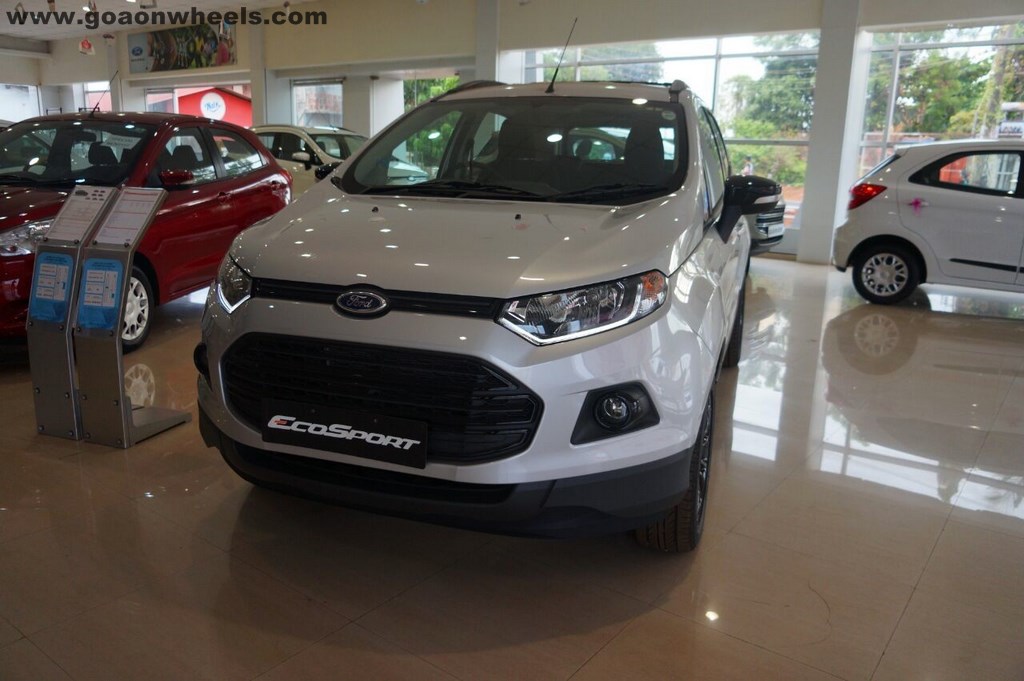Ford is looking at new and innovative ways to make their cars more appealing & user friendly. One such initiative is the new OpenXC Research Connectivity Platform to Developers for Market-Specific Apps in India and Globally.
Ford is now shipping beta test kits of its open-source connectivity research platform, OpenXC, to developers and research universities around the world.
The American car maker will demonstrate the first ever third party mobile app created with the OpenXC toolkit at NASSCOM India Leadership Summit.
So what is exactly the OpenXC Research Connectivity Platform?
OpenXC is an open-source hardware and software platform developed by Ford Research and Innovation and New York City-based Bug Labs.
OpenXC includes an interface module based on the popular Arduino platform that allows developers to read data from the vehicle’s internal communications network.
The hardware module provides real-time access to parameters like the vehicle sensors, GPS receiver and vehicle speed that can be read by apps while keeping everything isolated from the vehicle control systems.
The application allows a driver to send ‘Late arrival notification’ and ‘Safe arrival notification’ to selected personal contacts with an automatic location update during his travels. By monitoring location and speed information from the vehicle, the app can determine if the driver is running late for a meeting and then send an email or text message notification to other attendees without any input from the driver. The app can also notify the driver’s family following a safe arrival after a road trip.
Official Press release
Ford Offers OpenXC Research Connectivity Platform to Developers for Market-Specific Apps in India and Globally
NEW DELHI, India, 15 February, 2012 – Whether in mature automotive markets like North America or Europe or in growth regions like India, drivers want to take advantage of increasingly ubiquitous mobile connectivity. At the NASSCOM India Leadership Summit here, Ford is demonstrating its exciting and new OpenXC research platform and the potential of open-source application development for automobiles.
“Through the OpenXC research project, we are paving new avenues for entrepreneurs and businesses, both small and large, where the automobile, mobile phones and the internet cloud come together in the creation of new experiences when behind the wheel,” says Venkatesh Prasad, senior technical leader at Ford’s Research and Innovation organization, and keynote speaker at NASSCOM.
Ford Motor Company continues to explore new frontiers to further drive its pioneering efforts to deliver affordable industry-leading technology solutions for its next-gen and connected consumers. The inspiration for OpenXC came during one of Prasad’s visits home to India where he noticed that even those who couldn’t afford a car were able to afford a smart phone. The observation challenged him to deliver similarly relevant and affordable connectivity in cars.
“India is such a unique and diverse marketplace that as an automaker, it’s almost impossible to keep pace with consumer trends. The OpenXC platform will allow us to harness the power of the consumer and allow them to develop innovative solutions to meet their needs, at their pace.” Prasad adds.
OpenXC is an open-source hardware and software platform developed by Ford Research and Innovation and New York City-based Bug Labs to unleash the power of local developers to determine niche market-specific applications that take advantage of mobile connectivity.
“At Ford, we’re constantly researching and reshaping the role of the automobile to add value for our customers,” says Prasad. “OpenXC allows us to investigate what developers can do when we present the car in the same way as they see a smartphone software platform.”
OpenXC includes an interface module based on the popular Arduino platform that allows developers to read data from the vehicle’s internal communications network. The hardware module provides real-time access to parameters like the vehicle sensors, GPS receiver and vehicle speed that can be read by apps while keeping everything isolated from the vehicle control systems.
Ford has just started shipping the first OpenXC beta toolkits to Universities such as the University of Michigan, MIT and Stanford, as well as initial developer partners, including Weather Underground in the U.S. and HCL Technologies in India.
At NASSCOMM, Prasad will be demonstrating an app created by HCL that runs successfully on a Ford Figo. The application allows a driver to send ‘Late arrival notification’ and ‘Safe arrival notification’ to selected personal contacts with an automatic location update during his travels. By monitoring location and speed information from the vehicle, the app can determine if the driver is running late for a meeting and then send an email or text message notification to other attendees without any input from the driver. The app can also notify the driver’s family following a safe arrival after a road trip.
“Imagine a Ford Figo that tells your family when you reach your destination safe—a car that you can constantly reconfigure and personalize to suit your ever-changing needs and demands, using the most advanced technology in the auto industry but at a cost affordable to all consumers,” says an excited Prasad.
“With OpenXC, Ford is opening up access to the car and enabling local and independent developers to easily and quickly create apps using data provided by the car,” Prasad continues. “In combination with mobile connectivity and the power of the cloud, the possibilities for new and transforming apps are almost limitless.’’
Ford’s transformative approach toward the car and connectivity can lead still further, concludes Prasad. Developers working with OpenXC will be able to create apps across a wide spectrum of categories, from those dealing with personal information and entertainment to some contributing to a Better World – addressing congestion, healthcare and education



